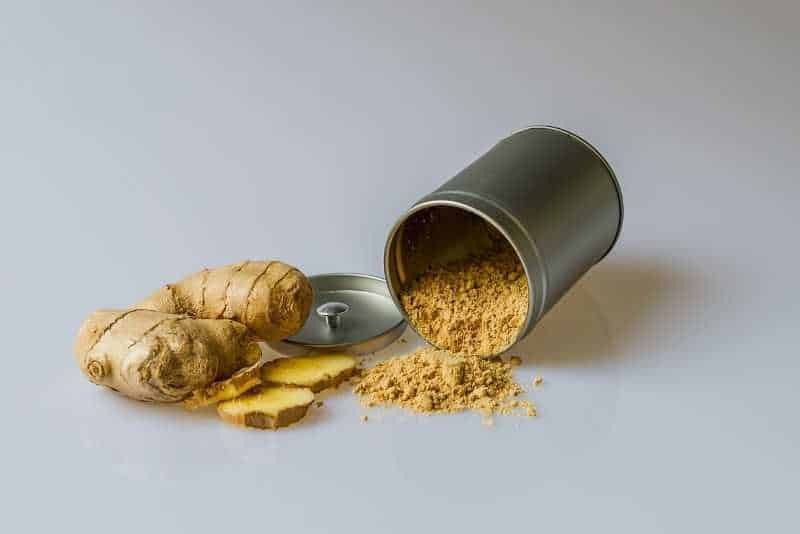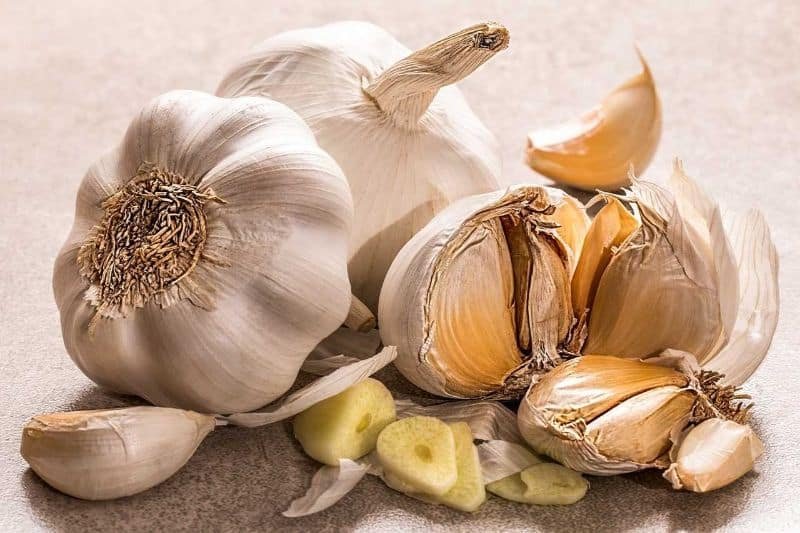15 Best Foods for Viral Infections: Boost Immunity and Fight Off Illness

Do you often get sick during the winter? If so, you’re not alone. Viral infections are expected at this time of year.
However, there are things that you can do to boost your immunity and fight off illness. One of the best ways to do this is by eating certain immune boosting foods.
This article will discuss 15 of the best foods for Viral infections you should be eating if you want to keep them away from you and your family.
Best Foods for Viral Infections
1) Broth
The broth is good to have on hand when you are sick because of its richness in minerals, nutrients, and electrolytes. Anyone who’s had the flu knows how hard it can be on the body, so staying hydrated is extremely important.
How Does it Work?
Broth contains electrolytes, which means it has elements that are essential for the body to function. When you have a cold or flu, your body is losing electrolytes through frequent urination and diarrhea. Drinking broth replenishes these lost electrolytes and helps prevent dehydration.
How should you take it?
To relieve a sore throat, mix one teaspoon of honey and half a teaspoon of cayenne pepper into a cup of hot broth. Drink this mixture three times a day until your symptoms have gone away.
If you have a stuffy nose, drink an extra cup of broth throughout the day to help clear congestion and break up mucus.
Related: Dr Berg Electrolyte Powder Review
2) Chicken Soup
Chicken soup is good for more than just the soul! A bowl of chicken soup can promote faster healing and fight infection.
The liquid in the soup can act as a demulcent that coats your throat, helping to relieve pain or discomfort. The steam from the liquid also acts as an expectorant that liquefies mucus, allowing it to be expelled more easily.
How Does it Work?
The ingredients in chicken soup, such as onions and parsley, can help fight infection. Parsley contains volatile oils that have potent antioxidant properties, which may inhibit the growth of bacteria [1]. Onions also contain strong antimicrobial compounds such as sulfonic acids and flavonoids.
How should you take it?
If you don’t have any chicken soup on hand but still want to reap the benefits of this tasty dish – you can make some homemade chicken noodle soup.
- Start by sautéing chopped onions and garlic in a pot with two tablespoons of olive oil for about five minutes.
- Add one tablespoon of oregano, salt and pepper, and four cups of water.
- Bring to a boil and let simmer for about twenty minutes.
- Add one cup of vegetables (any combination like carrots, celery, zucchini, or mushrooms).
- Cook for another ten minutes before adding 1/2 cup of uncooked egg noodles.
- Cook until tender and serve with parsley as garnish!
3) Ginger

Ginger is a root that can be found in many different foods and beverages. It fights off the infection, helping the body heal itself more quickly.
This anti-inflammatory compound may reduce swelling and actually stop the replication of viruses.
This makes it a good supplement to take during a cold or after you have been sick for a while. Ginger can be added in tea, juice, candies, and pickled.
How Does it Work?
Ginger is a powerful antioxidant that can help fight off viruses and keep the immune system functioning properly [2]. It also contains anti-inflammatory compounds, which can reduce painful aches and pains.
How should you take it?
When you have a cold or flu, staying hydrated is important. Drinking ginger tea throughout the day is a good way to stay hydrated and keep your immune system strong.
4) Citrus Fruits (lemon, orange, grapefruit)
Citrus fruits contain a powerful antioxidant known as Vitamin C. This amazing compound can reduce your risk of contracting viruses, especially when it is consumed in high concentrations.
It also helps the body absorb iron from plant sources. These nutrients are important for keeping you well and speeding up recovery time when you have been sick.
How Does it Work?
Vitamin C can help promote faster healing and fight off viral infections. This antioxidant has been linked to a reduced risk of getting sick and lower symptoms if one becomes ill.
How should you take it?
According to the National Cancer Institute studies, Vitamin C can be absorbed more easily through foods than supplements. However, it is important to note that Vitamin C supplements can also be beneficial.
When it comes down to it – the best way to ensure you’re getting enough Vitamin C is through a combination of supplements and food.
5) Garlic
Garlic can help fight infection and support the immune system. This is due to its potent antioxidant properties, which help fight off free radicals that cause cellular damage to tissues.
These compounds also help keep blood vessels clear, allowing for proper circulation throughout the body.

How Does it Work?
Garlic contains a compound known as allicin. Allicin has been shown to have strong antimicrobial properties, which can help fight off viruses and bacteria that cause colds and infections.
How should you take it?
According to the Health Sciences Institute, garlic is most potent when consumed raw. Consuming one clove a day is all you need to stay healthy. For an added boost, smash it up and add some lemon for a healthier dose of Vitamin C.
6) Onions
Onions are a cousin of garlic that has similar anti-inflammatory properties. They contain compounds that promote healthy immune function and fight cellular damage from free radicals.
When onions are cooked, they become even healthier because the heat breaks down the allicin content in garlic and onions so more people can absorb it. Cooked onions reduce inflammation in the nose, throat, and lungs.
How Does it Work?
Onions contain powerful antioxidants that can help fight off free radicals that cause cellular damage. Free radicals are one of the main causes of infection in the body, so preventing them from occurring is crucial to controlling viral infections.
How should you take it?
Cooking onions helps increase their benefits. Be sure to add plenty of onions to your dishes.
7) Broccoli

Broccoli contains Vitamin C, which supports the immune system. This vegetable also has lots of Vitamin K, which can help prevent respiratory infections. Broccoli is full of fiber and antioxidants, promoting good digestive health and preventing constipation.
How Does it Work?
Broccoli contains Vitamin C, which promotes a healthy immune system. It is also high in Vitamin K, which can help fight respiratory infections and reduce the severity of symptoms.
Fiber helps prevent constipation and cleanse the colon, while antioxidants help protect tissues from free radicals that cause infection.
How should you take it?
Broccoli provides many benefits whether you eat it raw or cook it. This is one of the few vegetables that are just as potent cooked as they are raw, so feel free to steam some up for yourself.
Related: 21 Best Foods That Boost The Immune System
8) Black Pepper
Black pepper, when used in moderation, can help prevent bacterial infections of the respiratory tract. It is a spice that contains anti-inflammatory compounds known as piperine.
Many people use black pepper to treat viruses because it stimulates blood circulation and helps with the absorption of other nutrients [3].
How it can help you?
Black pepper has anti-inflammatory compounds to help fight off harmful microorganisms. It also helps with the absorption of other nutrients necessary for fighting off viruses.
How you should take it?
Black pepper is one of the few spices you don’t have to worry about taking in excess. A little bit goes a long way, so feel free to sprinkle some on your food.
9) Water With Lemon
Water with lemon is full of Vitamin C, which fights colds and infections. Water also helps flush out your system, helping you stay hydrated during the cold season or after a virus in your system.
How can it help you?
Water is necessary for staying healthy and hydrated, especially during flu season. A diet high in Vitamin C helps prevent infections. Drinking water with lemon helps the body to absorb Vitamin C.
How should you take it?
Eating fruits high in Vitamin C is helpful, but it can be difficult to eat enough of them. Drinking water with lemon is the easiest way to make sure you are getting all the nutrients you need to stay healthy.
TIP: It’s best to drink warm or hot water with lemon, which has additional benefits.
10) Vegetables

Vegetables are full of antioxidants and Vitamin C. This is necessary to fight off infection. Different types of vegetables can be eaten raw, cooked, or juiced.
How can it help you?
Different types of vegetables contain lots of fiber and antioxidants that help stimulate digestion and promote immunity against viruses during the cold season. Juicing fresh vegetables can help speed up recovery time because it is rich in vitamins and antioxidants.
How you should take it?
Any vegetables you eat will help boost your immune system and prevent infections. For faster results, juicing fresh vegetables is a great way to get all of the nutrients without having to eat them whole.
11) Turmeric
Turmeric is a powerful antioxidant that can stop the replication of viruses. This spice contains curcumin, which gives it its bright yellow color and has been used as an effective herbal remedy for thousands of years.
Curcumin also stimulates the immune system to fight infections more efficiently.
How can it help you?
Curcumin is a powerful antioxidant that can stop viruses from replicating. It also stimulates the immune system to fight infections more efficiently.
How should you take it?
Turmeric is a spice that can be added to food for a delicious flavor boost. It can also be taken as a supplement, but it has a very strong taste, so you may want to mix it with something sweet or spicy.
12) Sage Tea
Sage tea is great for disinfecting the respiratory system, easing coughing, and treating sore throat. It can also help with digestion when consumed after a meal.
How does it work?
Sage has anti-inflammatory properties that soothe the respiratory system. It also fights off harmful microorganisms to prevent infection from setting in.
How should you take it?
Sage tea is simple to make just by adding hot water to dried leaves. It can be taken on its own or with some lemon and honey for added flavor. For faster results, it can also be taken as a supplement form.
13) Raw Honey

Raw honey is nature’s medicine. It contains antioxidants, minerals, and enzymes that help the body fight off infections. This type of honey is also great for soothing sore throats caused by coughs or colds.
How does it work?
Honey has anti-inflammatory properties that soothe irritation in the throat or respiratory tract. Antioxidants help fight off harmful microorganisms. Minerals and enzymes found in raw honey also help with digestion and nutrient absorption.
How you should take it?
Raw honey can be taken as a drink or added to food. It can also be used topically on the skin, but it is best to use local honey if you plan to do this. Local honey contains small amounts of pollen from flowers in your area and will help stimulate an immune system response for fighting off infections naturally.
TIP: Don’t buy blended honey from various countries around the world. You don’t really know what’s in your honey.
14) Brazilian Nuts
Brazilian nuts are full of selenium and zinc. Selenium is a powerful antioxidant that eliminates free radicals in the body, which helps prevent infections from setting in. Zinc also stimulates the immune system to fight off harmful microorganisms.
How does it work?
Selenium and zinc support the immune system by fighting against free radicals that cause infections. Brazilian nuts are also rich in selenium, which helps with immune function and fights off infections.
How should you take it?
Brazilian nuts can be eaten raw or cooked. It is best not to cook them in the microwave but rather on a stove to preserve their nutrients and crunchiness. They can also be added to oatmeal and other types of cereal for breakfast.
15) Mushrooms
Different types of mushrooms like maitake and shiitake contain protein-bound and water-soluble fibers that stimulate the immune system to fight off infections.
Mushrooms also have antioxidant properties that protect the body from free radicals, which cause damage to cells.
Related: Ayurveda – Health Benefits of Wild Chaga Mushroom
How does it work?
Mushrooms have fiber, antioxidants, Carotenoids, and phytonutrients that help stimulate the immune system to fight off infections.
How should you take it?
Mushrooms should be eaten in their natural form. Different types of mushrooms can be used in different ways, such as in a stir fry, with meat or chicken dishes, congee, and salads.
Related: Are Mushrooms Healthy? Here’s What Experts Say
Final Take
The best foods for fighting off viral infections are rich in antioxidants and nutrients that stimulate the immune system to fight off harmful microorganisms.
These foods also help reduce inflammation and promote healthy digestion.
🥦 If you enjoyed reading our article on the best foods for viral infections, consider sharing it with your friends and family. Nowadays, prevention is the best medicine of all.
